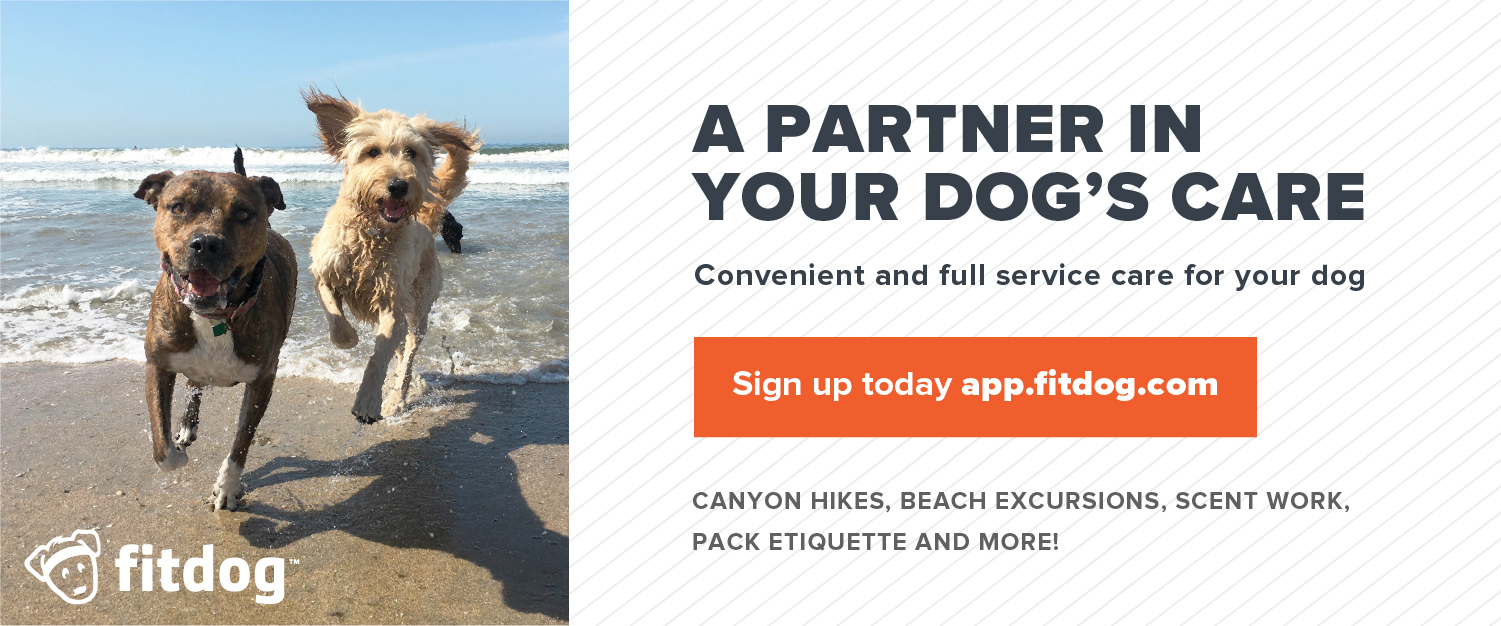Does your four-legged friend constantly bark, cry or have separation anxiety when you leave the house or room? Does your favorite canine go crazy around new guests and can’t calm down easily? Did a bad experience with a training program lead to no avail? Did you just get a new puppy and don’t know where to start?
If you answered yes to any of these questions, we have some good news for you: there’s a better option! If your furry friend needs a more personalized training experience that is geared towards their very own specific needs and behaviors, Fitdog offers a variety of training programs to help your dog gain a solid training foundation and improve behavioral issues.
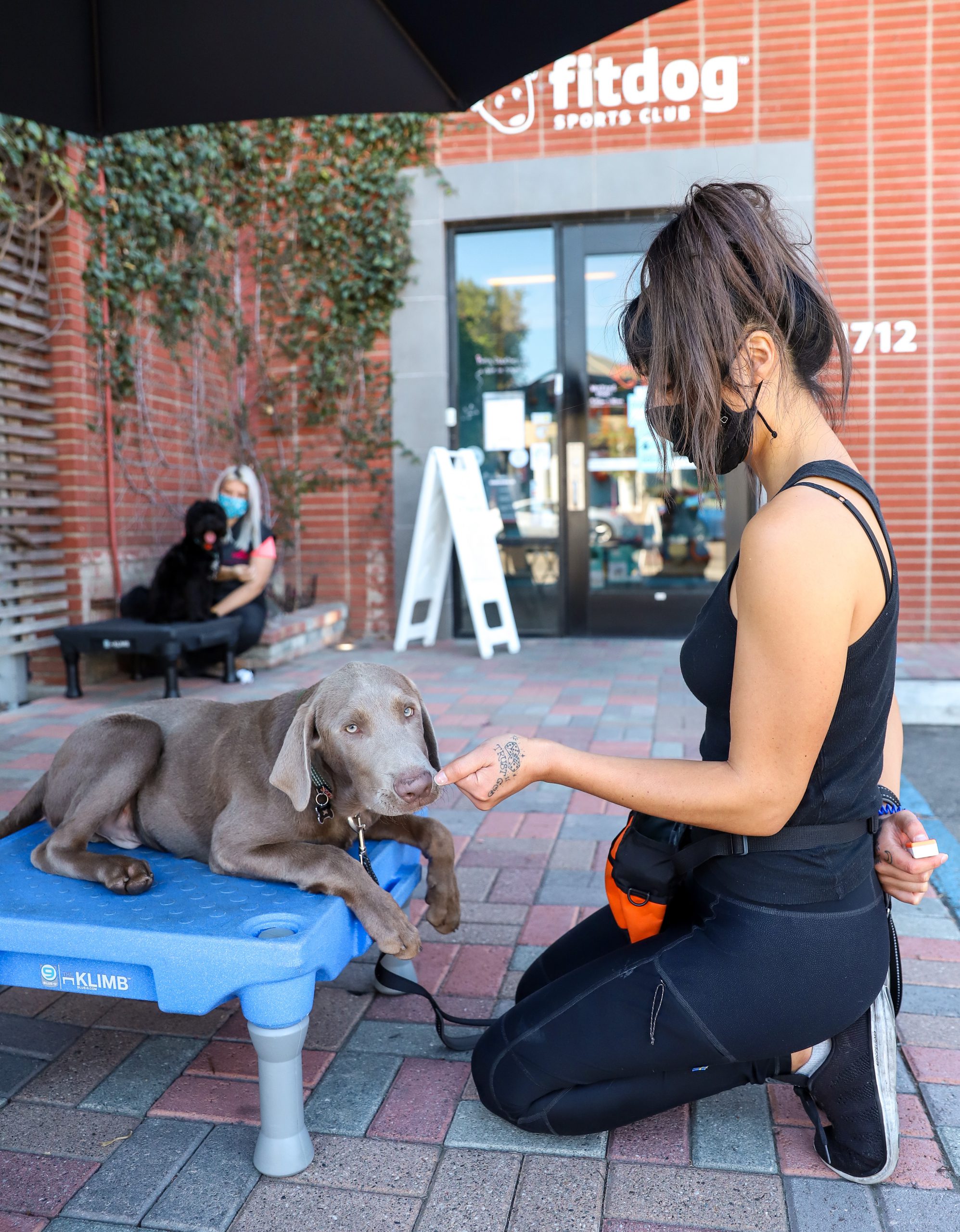
Board & Train Program
Our Board & Train is a one-on-one program in which your dog stays overnight with a trainer. The trainer spends 24/7 focusing on your specific behavioral concerns. Sort of like language immersion, but for dog training!
There are many reasons people decide to put their dogs in board & train programs. Dogs are usually in these types of programs because they are struggling with difficult behavioral problems like impulse control or separation anxiety. In other cases, dogs are slower to pick up on basic commands, while others can be stubborn.
Learn more here.
Foundational Obedience Program
Fitdog’s dog obedience training program sets a solid foundation of good obedience and manners. And most importantly, it prevents future obedience issues. Additionally, the program teaches and modifies behaviors with and without distractions and in public areas.
If your dog doesn’t have much experience with training and needs to set a foundation of good behaviors, the foundational obedience program is a great start. In addition, your dog will learn core commands as well as good manners, leave it, basic leash walking, recall and more.
Learn more here.
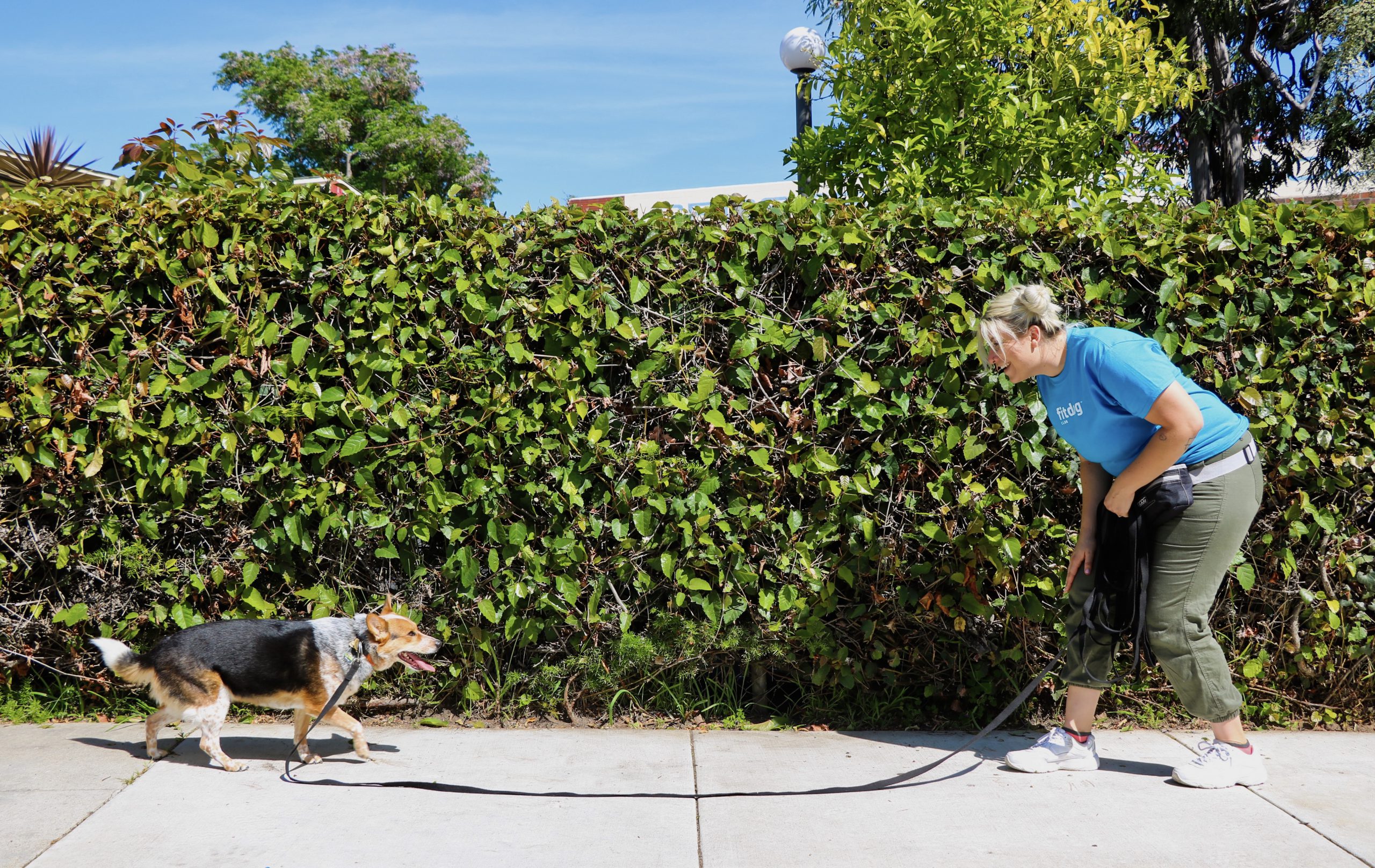
Obedience Plus: Leash Pulling
Our leash pulling training focuses on leash manners and leash pulling. If your dog exhibits extreme pulling or leash reactivity, this class is a great fit.
Your dog will spend extra time practicing on walks and learning to curb impulse control around other dogs and squirrels. They will also spend time in a pack setting to teach them how to learn in a distracted environment.
Learn more here.
Puppy Preschool
Did you just get a new puppy and don’t know where to begin? Our Puppy Preschool is designed for puppies 8 weeks to 22 weeks old. Each preschool day includes a 6 hour schedule rotating between obedience training, socialization, naps, potty breaks and handling. The goal is to provide your puppy with a loving, well-rounded, and beneficial experience.
Learn more here.
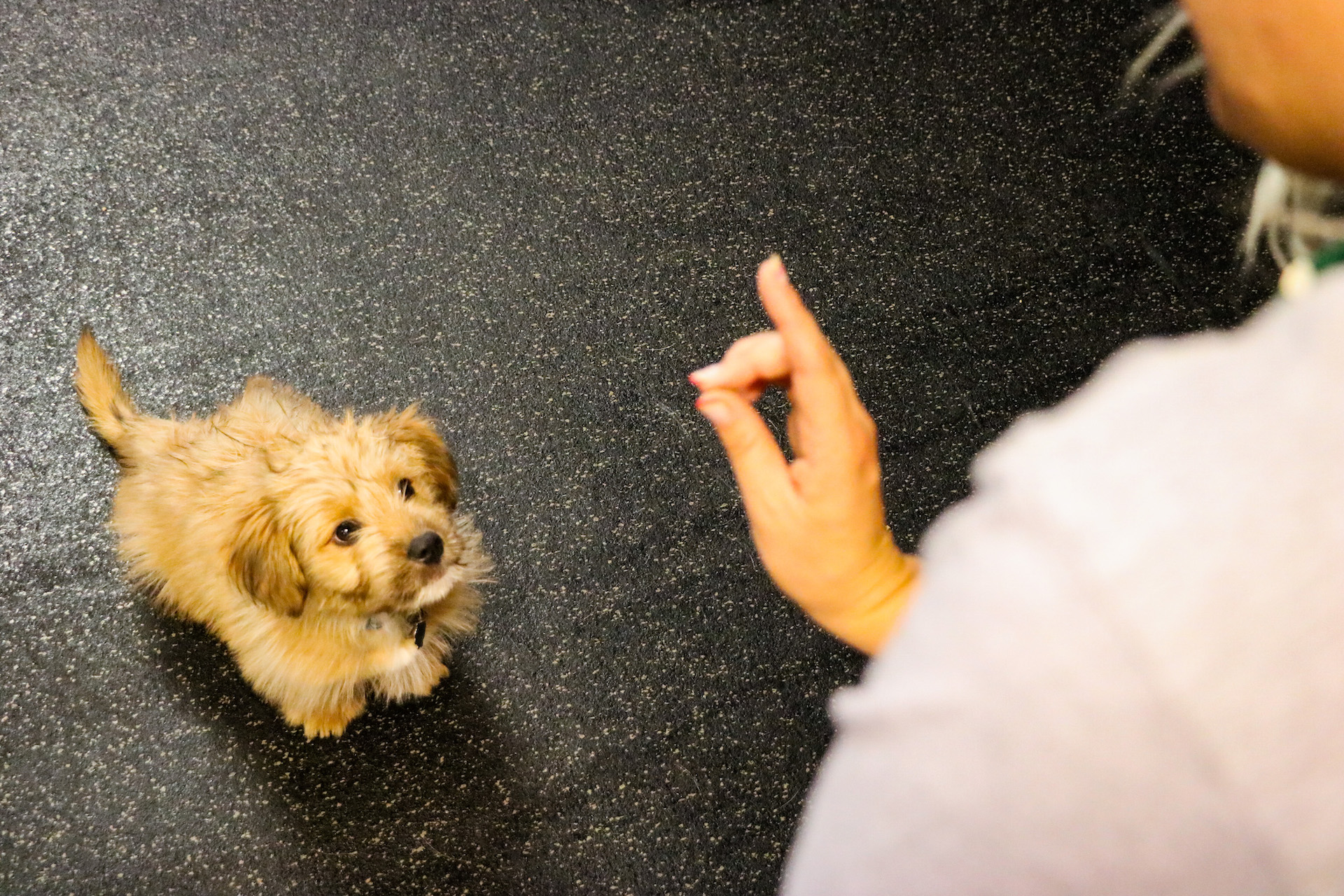
Puppy Essentials
If you have an older puppy who needs to be introduced to basic obedience or if they are a recent graduate of our puppy preschool program, our puppy essentials program is a great fit.
This program will teach your dog how training works (it’s not innate!), basic cues for everyday life, and provide an introduction to leash walking behaviors. Plus, puppies will be exposed to other people, environments, and dogs, which improves sociability and reduces reactivity.
Learn more here.
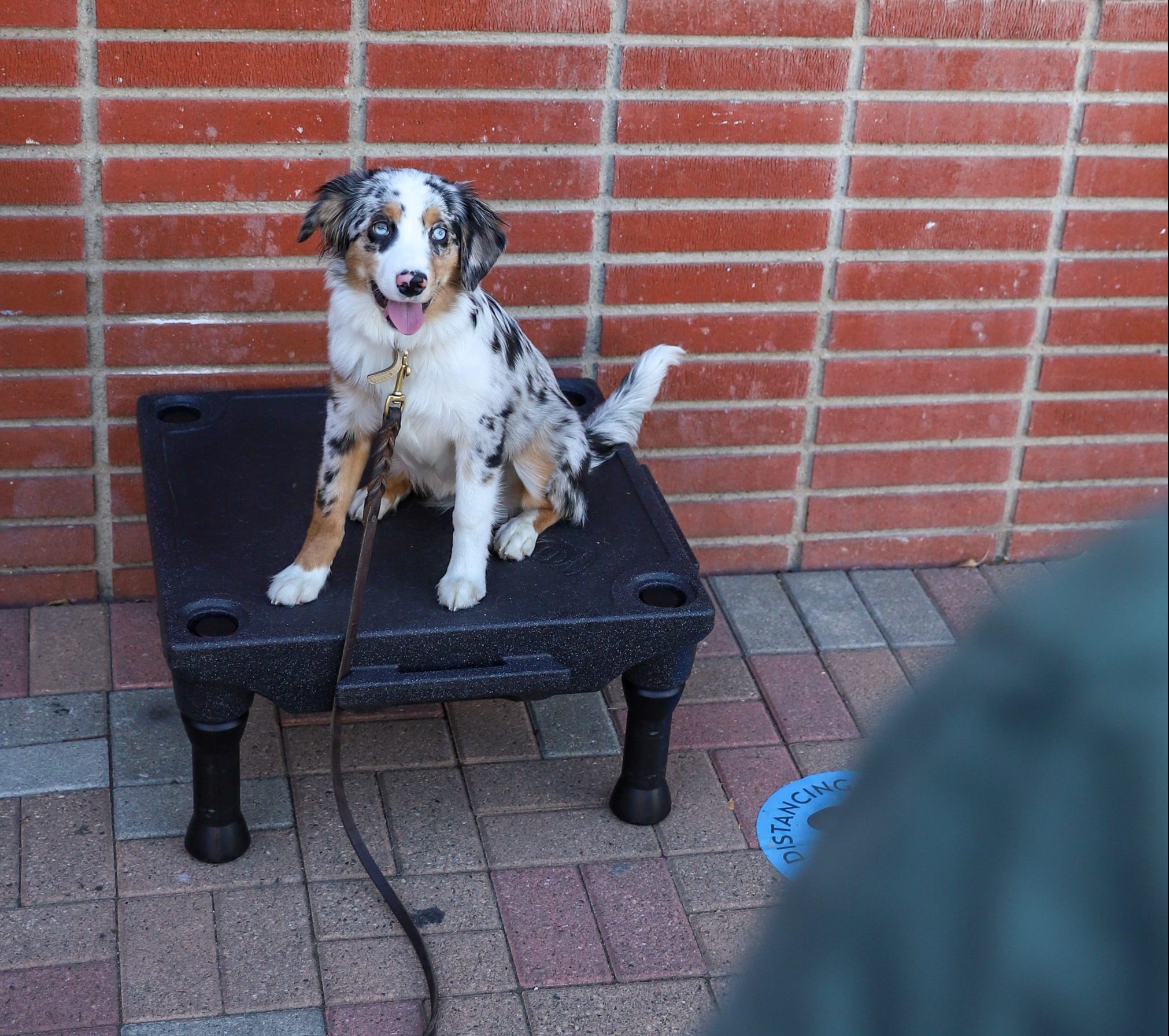
Set realistic goals
Before starting any training program, you will have important conversations with your trainer about your dog, your life and how everything affects each other. Having a discussion with the trainer will allow you, and the trainer, to have a better understanding of what can, or cannot, be achieved during the training process.
Listen to the trainer’s recommendations, set realistic goals of what to expect after your dog comes home. And, most importantly, learn how to keep up with the results once the training is complete.
Tell the truth about your dog
Dogs are like our kids, and sometimes that means we feel that their behavior can be a reflection of us. While owners can facilitate certain behaviors upon their dog without knowing it, please remember: it is nothing to be ashamed of! In fact, the more that you tell your trainer, the more likely your dog’s training success.
Some things to bring up to your trainer include:
- How much daily exercise your dog gets
- How long your dog is home alone
- What types of destructive behaviors your dog demonstrates around the house
- What kind of aggressive tendencies there are towards people and other dogs
Consider your dog’s developmental stage
There are four developmental periods to consider when training dogs. For each stage, you’ll learn about what to expect, the training focus, and recommendations. By understanding the social and emotional development of dogs, we can set appropriate training goals and give dogs a holistic training experience.
Different developmental periods:
- Socialization Period: 8 to 12 weeks
- Establishing Hierarchy: 4 to 6 months
- Adolescence: 6 to 12 months
- Social Maturity: 1 to 2 years
Read more here.
Your lifestyle and relationships matter
You may be surprised to learn your lifestyle and the people who are in your life greatly affect your dog’s behavior! Trainers will try to decode this information during the consultation, so you might as well make their job a bit easier and tell them what’s going on openly and honestly. Don’t be afraid to be upfront with your answers. We won’t judge you! Our trainers have heard it all – consider your trainer consultation somewhat of a therapy session!
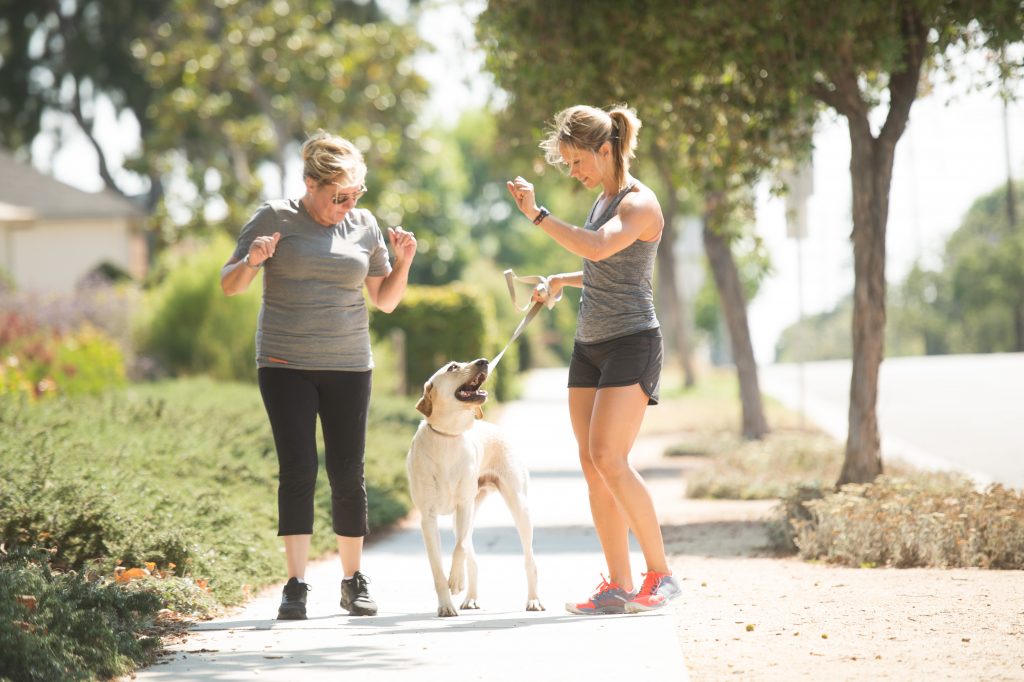
Be ready to maintain the training
A major factor that we have noticed at Fitdog is that a lot of doggy issues tend to stem from the fact that dogs are underutilized. When a dog is underutilized, it translates into your dog becoming mentally and physically bored. They are wired to want to perform certain tasks, and if they do not get the chance to release that energy, they can act out.
Most of the time, our trainers will recommend increased exercise as a necessary foundation for maintaining training. This means you’ll have to put in the hours to play with your pup every day. In addition to exercise, it is essential to follow through with every one of the trainer’s instructions. This is the only way to maintain results. And if you can, you’ll have one happy, healthy dog.
Enroll in a Fitdog training program
Are you seriously thinking about enrolling your dog in a training program? Or, if you are only looking to sign up for classes, we offer a variety of enrichment and training classes at our facility in Santa Monica. For any questions, or to schedule a consultation, please call us at (310) 828- 3647.
